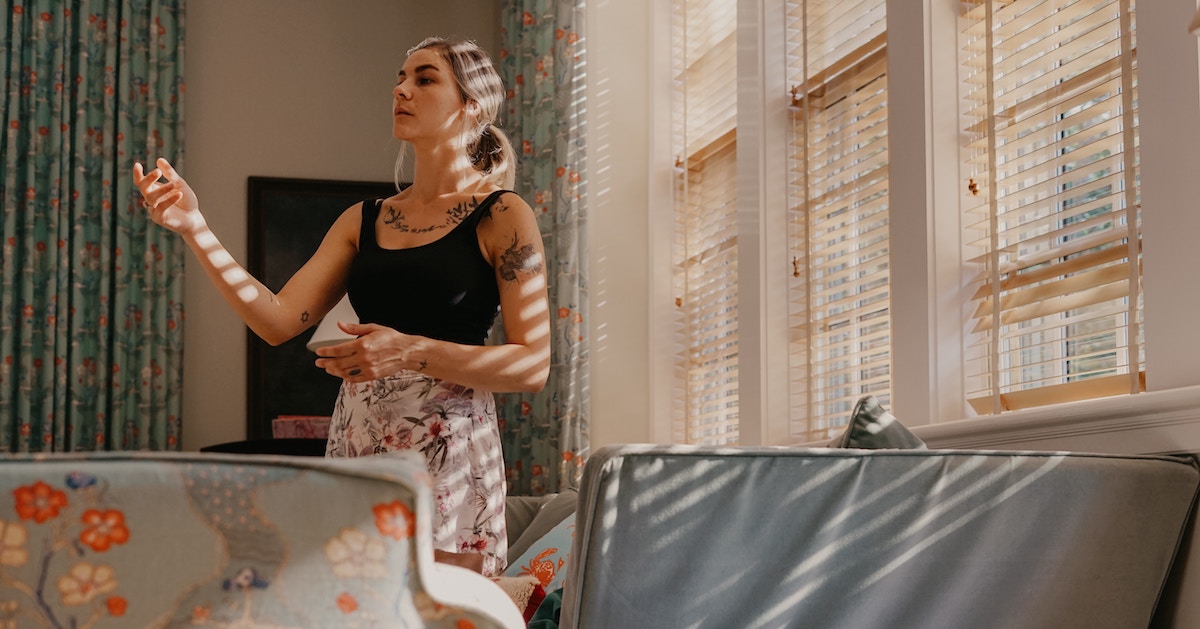
How Much Money Do Special Education Teachers Earn?
The quick answer is not nearly enough, given that special [...]
An episode of Kitchen Nightmares had the host, Chef Gordon Ramsay, excoriating a family about its restaurant, Sam’s Mediterranean Kabob Room.
The Chef initially asks the whole family to take turns pointing out why the business isn’t improving. It’s painful to watch. At this point, the father and mother start crying. It’s obviously a real breakdown. The chef watches for a split second then stands, says he’s going to give them a moment, turns, and leaves. At this point I subconsciously notice, maybe because of my sign language skills, that he shrugs and widens his eyes as he turns to leave, looking almost directly at the camera. It’s a quick second, a lightning flash of an event.
I noticed Ramsey raise his hand slightly before the camera switched to a close up of the father’s face. Even though it was just one or two frames, it seems to me he was telling the cameraman to get the hell out of there. If my reading is correct, I agree with him. There is such a thing as tasteful and respectful. The camera chose not to follow the Chef’s orders, clearly, and I wondered why.
Was it the producer? The editor? In that moment, I had a different view of the host, maybe one that wasn’t intended to be received by an American audience that didn’t use sign language, maybe not by one that didn’t have experience moving between cultures.
I realized I was suddenly reading many different stories, narratives intended and unintended by the editing and juxtaposition. I read a story of camera decisions and editorial choices, another story of intended messages, a third story of conflict and media organizations.
How do you teach that? Is that what we mean by literacy in today’s world? Being able to read between those lines?
Readers should be critical of any source. The sociologist and historian James Loewen uses as an example a history textbook that told elementary school children that Abraham Lincoln was born in a log cabin he built himself with his own hands. Clearly this isn’t a historically-based observation. Even in the classroom, we’re giving children edutainment.
How do I give the necessary decoding skills to a high school student?
As a critical deaf writer who teaches, I ask new deaf teachers: What is the point of teaching math, social studies, and English in a digital world to deaf children? What skills do we want children to have?
I recall my own childhood spent in classes where the emphasis was on pronunciation rather than percipience. My parents, rather than my teachers, taught me to look at something as simple as Kitchen Nightmares and see it as three, four, even five or six sometimes conflicting texts, giving me messages about producers and participants; what they think the audience thinks; and what they want the audience to think. Then I think about a student watching, say, The History Channel, or the Discovery channel, and watching entertainment presented as education. Perhaps literacy today means giving students the tools to begin making those distinctions for themselves.
John Dewey claimed that education was the necessary foundation of democracy because without education, citizens cannot meaningfully participate. They cannot critically engage with information.
This applies to every discipline. Students need literacy in math, social studies, English, and even literacy in television and computers. They need to develop these skills in tandem, because, like on Kitchen Nightmares, everything will be presented to them at the same time.
When Fox News reports that 59 percent of people believe scientists falsified information to support claims of global warming — and the number of their participants add up to 120 percent, students need critical math, social studies, and critical media skills to be literate enough to respond. Literacy is everywhere, and we are always learning.
We all need a living banner to our career, something to judge the world and our own actions by. It can be a question, a quote, or anything that helps to focus us as we work.
This is part of mine: Finding ways to keep teachers who work with deaf children focused on critical literacy, more than simple concrete understandings.
In an unequal world, deaf people often need different types of learning for survival, productivity, and a good future. And this lesson both takes and gives back when it comes to teachers who work with other children, because it’s a truth for all of us, and remembering this truth has benefited me greatly as a teacher working in the mainstream, in adult education, in deaf schools and now with young, future teachers.
What’s your living banner as a teacher or educator? What leads you as you work? And can you see it between the lines of something as seemingly disconnected as a cooking show on television?
Questions or feedback? Email editor@noodle.com

The quick answer is not nearly enough, given that special [...]

Pro: You'll make a very decent salary.nCon: Your friends will [...]
Categorized as: Teaching, Education & Teaching